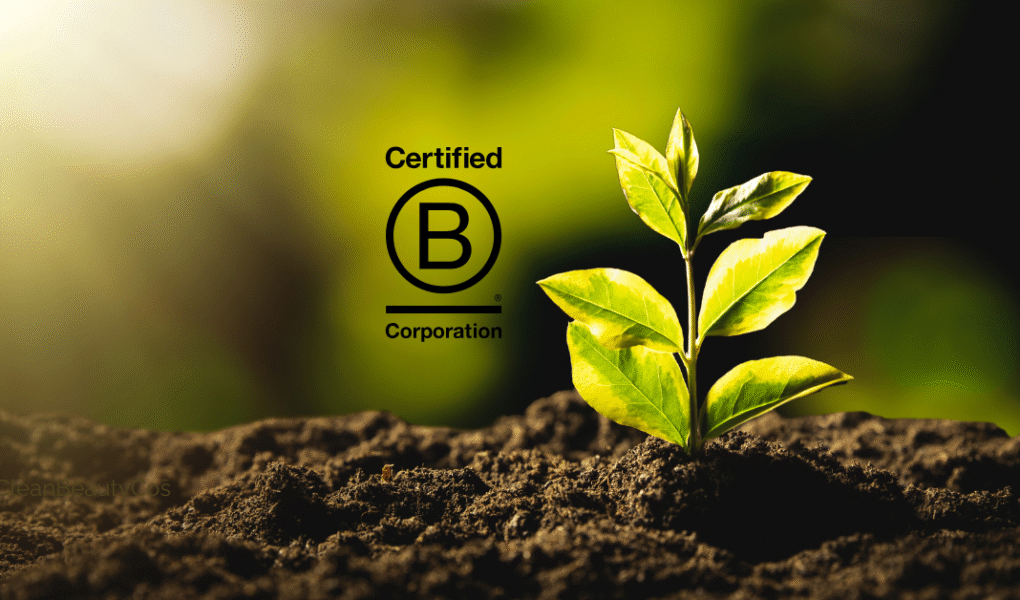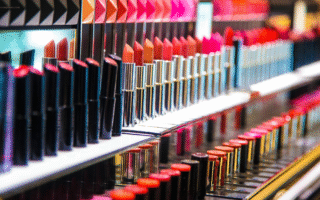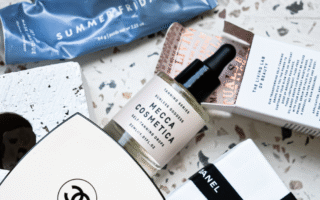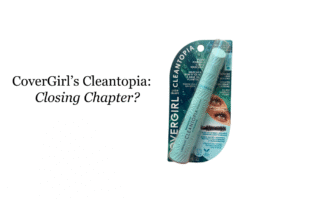Logo by B Lab, via Wikimedia Commons
If you’ve seen the little “B” logo stamped on beauty brands like Weleda, Sunday Riley, L’Occitane or Clarins, it isn’t just a marketing badge, it’s a certification.
A B Corporation (or B Corp) is a company that’s been certified by the nonprofit B Lab for meeting high standards of:
- Social performance (fair labor practices, employee well-being)
- Environmental performance (sustainable sourcing, carbon impact, packaging)
- Accountability (governance, transparency)
- Public transparency (you can look up their full impact score online)
Unlike traditional CSR (corporate social responsibility), which is often self-defined, B Corp status is audited and scored by a third party. Brands must recertify every 3 years, and they’re scored across 5 key areas: governance, workers, community, environment, and customers.
Why it matters in beauty
When you see B Corp on a beauty product:
- It means the brand is voluntarily legally bound to consider people, planet, and profit.
- It’s not just about making charitable donations — it’s about how they run the business day-to-day.
- But it’s also worth noting: not all B Corps are created equal. Some just scrape by the minimum score, while others are real leaders in sustainability.
Just because a brand displays the B Corp logo doesn’t necessarily mean its products meet any one strict definition of clean beauty standards. That said, one tenet of B Lab certification: “…through their products, practices, and profits, businesses should aspire to do no harm and benefit all.” B Lab evaluates a company’s social and environmental impact — governance, labor practices, community engagement, and environmental footprint — but it does not evaluate ingredient transparency, safety, or toxicity.
In other words, a B Corp is a responsible business, but not automatically a clean beauty brand. It’s a useful signal for transparency and ethics, yet ingredient-conscious consumers should still check formulations themselves.
Who controls the B Corp certification?
- B Corp is overseen by a nonprofit called B Lab, founded in 2006 in the U.S. by three former private equity professionals.
- B Lab sets the standards, audits companies, and manages the certification process.
- It’s independent, however critics sometimes point out that it’s also a business model in itself.
B Corp & the UN
B Lab, the nonprofit behind B Corp certification, partners with the UN Global Compact to help businesses align with the Sustainable Development Goals. While B Lab itself isn’t part of the UN, this collaboration underscores its commitment to transparency, social impact, and responsible business practices
Do companies pay?
Yes. Companies pay an annual certification fee to B Lab, which is scaled based on revenue.
- Smaller companies might pay just a few thousand dollars.
- Global giants like Unilever subsidiaries, or beauty brands can pay tens of thousands annually.
- There’s also a verification process fee when applying.
So while the certification does carry weight (because it’s audited), it’s not free. Some critics argue it’s partly a pay-to-play system, though B Lab defends that the fees fund the auditing and standards enforcement.
What is the B Corp Beauty Coalition?
If you’ve seen references to B Beauty or bcorpbeauty.org, that’s the B Corp Beauty Coalition, a network of beauty brands that share knowledge and push for more sustainable and transparent practices across the industry.



